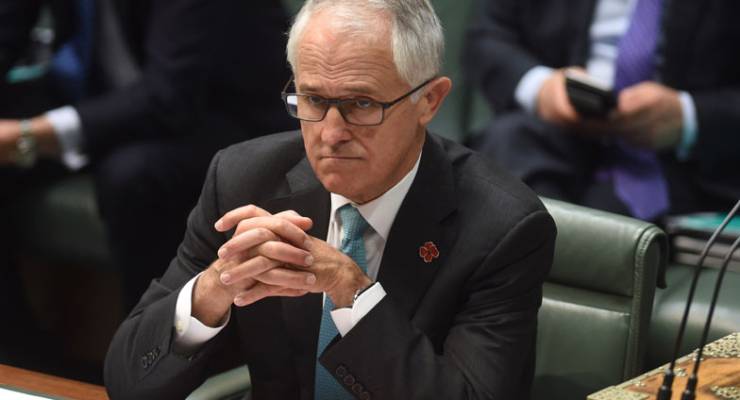
“Declare victory and go home.” Senator George Aiken on Vietnam (paraphrased)
The government secured the headlines it wanted for this week — ABCC passed, backpacker tax passed — and promptly went home, a steady line of Comcars streaming from parliament to Canberra “International” Airport (it’s actually now called that) this morning carrying MPs off for their Christmas break.
As Aiken’s memorable, if somewhat misattributed, prescription suggests, it doesn’t pay to look too closely at the exact nature of the victory or focus too much on the details. But such are the low expectations that surround this government — and for that matter politics generally at the moment — that it’s a trick that might actually work.
Having decided that it would do anything to secure passage of a bill featuring “ABCC” in the title, the government allowed all manner of important policies to be shoehorned into the bill, while other key elements were taken out; as Seven’s Mark Riley correctly pointed out this morning, a lot of the Coalition MPs who lost their seats in July might be wondering exactly why they were sacrificed by Malcolm Turnbull, given the bill will replicate the current FWBC on key issues and dramatically increases the tasks the new ABCC will have. Like Frankenstein’s monster, the new ABCC is stitched together from a diverse range of ideological perspectives, and will be part anti-CFMEU agency, part-employee entitlements protector and part protectionist regulator imposing a mania for local materials on major construction projects.
Nonetheless, it’s a model of consistency compared to the backpacker tax, now to take its place as the first entry in the Australian Public Service’s forthcoming “how not to develop policy” handbook, especially with the lovely grace note achieved as part of the Greens’ cave-in yesterday afternoon — the government will only earn the same revenue as if it had agreed to the 13% level Labor agreed to come up to (being the party of higher taxes, of course) despite achieving its headline rate of 15% (being the party of lower taxes), except for the $100 million it agreed to provide Landcare, presumably picked by the Greens in an internal lottery of environmental programs. The $100 million, presumably, will come straight from another environmental program, but the Greens don’t need to worry about that.
It’s a rare piece of legislation where literally no one comes away with a win, but the government seems to have engineered it in its shambolic backpacker tax process.
This would all just be amusing, inside-Canberra fun and games if there weren’t more pressing matters to address. Yesterday’s capital expenditure figures suggested investment in non-mining sectors is still struggling to offset the ongoing fall in mining investment, while expected expenditure for 2016-17 is looking significantly lower even than expected. The trend in dwelling approvals is also down, raising questions about how much longer housing construction will generate growth.
The government’s answer — its only answer — is company tax cuts, despite (to say it for the umpteenth time) the lack of any evidence company tax cuts stimulate growth. But even this half-arsed trickledown economics stuff has been put on the legislative backburner, to the dismay of the delusional lobbyists of the Business Council, who remain convinced giving their multinational members the chance to pay even less tax than they already do just needs the right messaging from them to convince the public. For the BCA, if they can only find the right form of lecture, most likely from yet another old white male business figure, about how tax cuts will flow through into the economy and workers rather than go to shareholders, then their problems will be solved.
The declaration of victory this week was thus in a phoney war, a considerable distance from the real battle, to make sure we have strong sources of economic growth when two key sources seem to be faltering.








Malcolm Turnbull: a shadow of his former shadow.
The backpacker tax was only an issue because the government made it one by trying to make it 32.5% in their own budget. Some victory.
I am still confused about the backpacker tax, whether there should be one and how much it should be. It has been really badly handled and poorly explained by the government
Turbott’s “MISSION ACCOMPLISHED” – why didn’t he wear his leather jacket ….?
The BCA can’t complain. They got what they’ve paid for, by the hatful.
We have the voters of New England to thank for the backpacker debacle, have you ever seen such an idiot spitting phlegm all over in parliament?